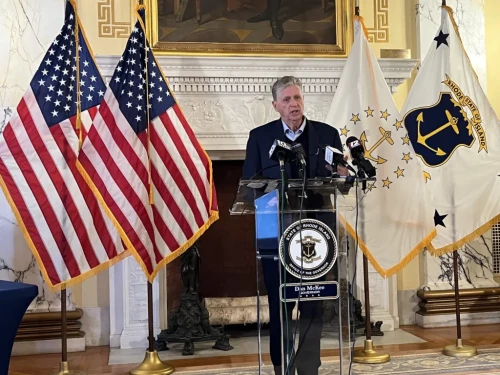At a debate on Oct. 7 at Cranston West High School, incumbent Mayor Ken Hopkins and Democratic challenger Robert Ferri portrayed two very different visions for the city.
Moderated by The Public’s Radio morning host Luis Hernandez, a panel of three journalists — Rory Schuler of the Cranston Herald, The Public’s Radio political reporter Ian Donnis, and Rhode Island PBS reporter Isabella Jibilian — asked the opponents about topics ranging from immigration to the city’s flooding problem.
Ferri, a Cranston city councilor, put Hopkins on the defensive at times – pointing to what he characterized as financial mismanagement, accusations of corruption, and a lack of investment in housing and public works.
When asked about the state of the city’s finances, Hopkins said “Cranston is in great financial shape,” pointing to the city’s high credit rating and what he described as “excellent services with great schools.”
This story was reported by The Public’s Radio. You can read the entire story here.







